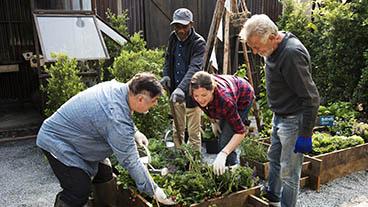Master Gardeners are trained volunteers with gardening backgrounds ranging from hobbyist to professional, from beginner to experienced, from young adult to senior citizen. The common bond is a love of gardening, learning and sharing. After training, Master Gardeners serve as a resource with University of Missouri Extension to give county residents research-based answers to their gardening questions. The primary purpose of a Master Gardener is to volunteer, but members rate camaraderie and learning opportunities as important reasons for participating. To become a Master Gardener, call 417-881-8909.
Greene County Master Gardeners website
Hotline
Call the hotline directly at 417-874-2963 with gardening questions. Master Gardeners are available from 10 a.m. to 4 p.m. Monday through Friday, March through October, except holidays. At other times, leave a message. Calls are returned as soon as possible.
Newsletter
Master Gardeners of Greene County send out a monthly newsletter – Sign up to stay in touch!
